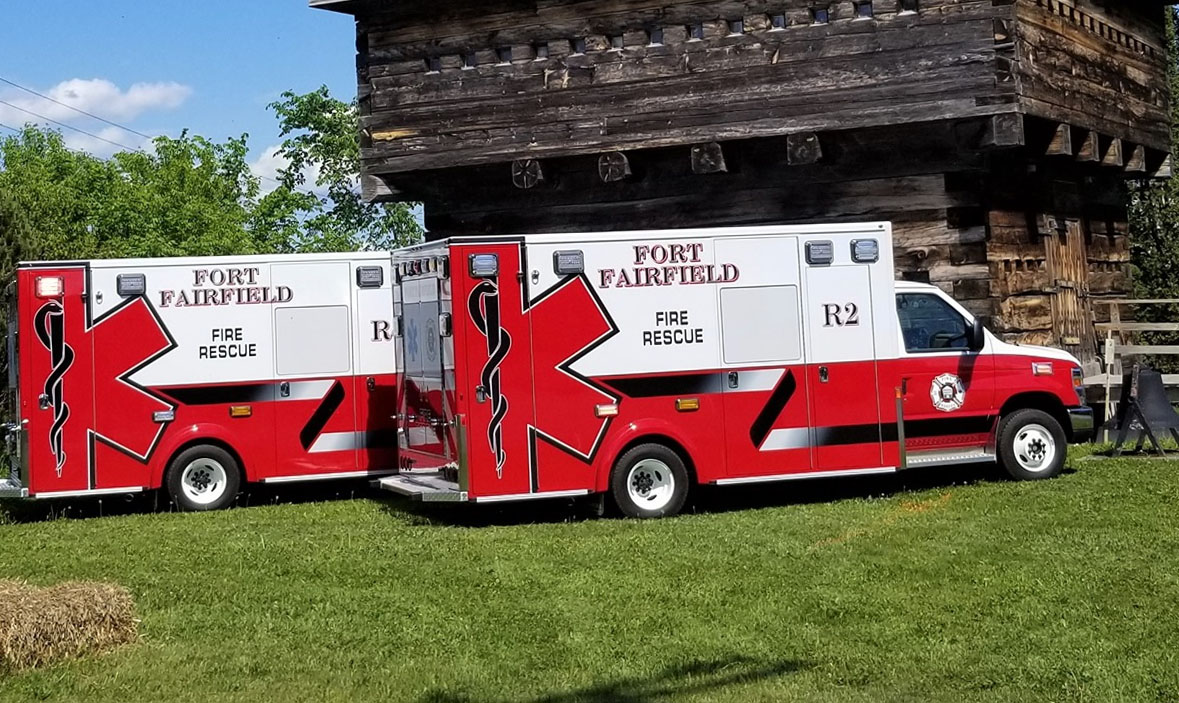
FORT FAIRFIELD, Maine — The Fort Fairfield Town Council voted 4 to 1 in favor of the often controversial 2021-2022 fiscal year budget during a special meeting held on Thursday.
The approved budget totals $7 million, a slight increase over the $6.9 million proposed budget previously discussed during the council’s prior meeting. But due to increased projected revenues from the town’s new Fire & EMS Department, the estimated deficit has decreased from $434,926 to $331,930.
During the public comment period, resident Dave Dorsey questioned the EMS per capita charge and urged the council to be more conservative in their budget expenses.
“In Fort Fairfield, people pay $332, but in Caribou they pay $100 and in Presque Isle it’s $76,” Dorsey said. “I don’t know how we got into this mess, but we gotta get out.”
In the council-approved FY budget, ambulance service revenue is projected at $408,642 compared to $257,700 in the previous proposal.
Town Manager Andrea Powers attributed the increase to news that the town recently received about their billing service and expected payments. Previously, the town had only received one $800 payment for ambulance services. But Powers expects another “large sum of money” in the near future from the billing service that the town uses for Medicare and Medicaid.
Additionally, revenues were difficult to project when the service first started in August 2020, Powers said.
“[The billing agent] grossly underestimated our monthly revenue,” Powers said. “It’s still a conservative number, considering the time it takes between when we’re billed and when we receive payments.”
Resident Jerry Sirois asked the council if it would consider some type of partnership with Presque Isle’s fire and EMS department again, as a potential way to reduce costs to townspeople.
“It seems like we should at least look into it,” Sirois said.
But councilors remained steadfast in their support for the ambulance service, citing residents’ support of local EMS and their quick response time compared to the period when the town relied on Presque Isle.
Councilor Bob Kilcollins said that the majority of residents who spoke to him before and after the ambulance service’s creation expressed support for a local EMS department.
“After hearing the pros and cons from all sides, we voted on what would be best for the community,” Kilcollins said.
Council Chairperson Mitchell Butler recalled a time when his 3-year-old grandson was having a seizure but lacked medical care for at least 20 minutes while an ambulance from Presque Isle was on its way. He praised the EMS staff for allowing stories like that not to happen.
“I pay taxes, too, and so I see the Fire & EMS as a way for us to get two services out of one department,” Butler said.
Councilor Mark Babin thanked the department heads and residents who voiced concerns about the budget. He encouraged the latter group to remain optimistic about potential growth related to the ambulance service.
Melissa Libby also acknowledged the often different and passionate opinions concerning EMS impact on the budget, but supported the final FY numbers.
“The ambulance service is something we need to continue looking at because it’s a new department and we’re still learning about its impact,” Libby said. “But we can’t cut any more [from the budget] without it impacting services.”
Scott Smith became the only councilor to vote against the final budget. He called for more open discussions with community members about future budgets and town services.
“I do believe that the per capita cost [for EMS] is a little higher than necessary, but we should at least have a conversation about it,” Smith said. “Those numbers could hit taxpayers hard next year, and they’re already upset about it.”







